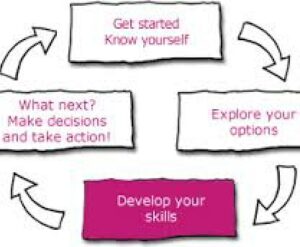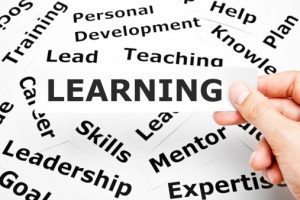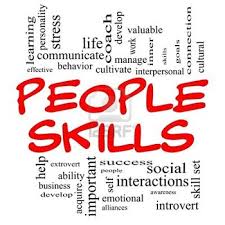 Here is an article from skills you need dot com
Here is an article from skills you need dot com
Become worth a damn
The term ‘Life Skills’ refers to the skills you need to make the most out of life.
Life skills are usually associated with managing and living a better quality of life. They help us to accomplish our ambitions and live to our full potential.
Any skill that is useful in your life can be considered a life skill. Tying your shoe laces, swimming, driving a car and using a computer are, for most people, useful life skills.
Here at Skills You Need you’ll find lots of information about life skills and life skill development. We don’t cover tying your shoe laces but you will find hundreds of articles around personal development.
Essential Life Skills
There is no definitive list of life skills. Certain skills may be more or less relevant to you depending on your life circumstances, your culture, beliefs, age, geographic location, etc.
Different life skills will be more or less relevant at different times your life, for example:
- When at school or university, you’ll need study skills
- When buying a house, negotiation skills may be needed
- You’ll need to work on your employability skills to get a job
- When you have a job, leadership and presentation skills may be useful, along with a whole host of other skills.
- When you start a family, time management and organising skills are likely to become important.
- There will be times throughout your life when you’ll need conflict resolution, stress-management and problem solving skills too.
However…
 Perhaps the most important life skill is the ability and willingness to learn.
Perhaps the most important life skill is the ability and willingness to learn.
By learning new skills we increase our understanding of the world around us and equip ourselves with the tools we need to live a more productive and fulfilling life, finding ways to cope with the challenges that life, inevitably, throws at us.
Life skills are not always taught directly but often learned indirectly through experience and practice.
Personal Skills
Personal Skills are the essential life skills we need to help maintain a healthy body and mind.
How we recognise, manage and cope with emotions – Our page, emotional intelligence demonstrates how important it is for us to be aware of our (and other people’s) emotions. You can find out more about your personality type on our page Myers-Briggs Type Indicators (MBTI) and our page, Keeping your Mind Healthy is worth a read.
Anger and Stress can both be detrimental to our personal relationships and our health. Learning about anger and stress, recognising what may trigger them (in ourselves and others), what the symptoms are and how to control or manage such emotions can greatly enhance our the quality of our lives.
Managing Stress is a key modern life skill. You will find an introduction to stress on our What is Stress? page and then a series of further pages designed to help you avoid, reduce and manage stress in your life: Avoiding Stress, Stress in the Workplace and Tips for Dealing with Stress.
Find other ways to help you cope with stress by reading our pages on Time Management and Minimising Distractions so you can make the most of your time.
We also have sections on anger, including What is Anger? and Anger Management, to help you.
Many people battle with low self-esteem and confidence which can cause stress and prevent them from reaching their full potential.
Our pages: Improving Self-Esteem and Building Confidence provide practical ways to overcome these issues. Improved confidence and self-esteem are also linked with how we present ourselves to others see: Personal Presentation and Personal Appearance for some additional guidance.
And let’s not forget our body since we are what we eat.
We should all be aware of the benefits of a healthy diet and our pages on nutrition can help you understand why our diet is so important.
Alongside diet, exercise can play an important role in improving our sense of well-being and maintaining a healthy body and mind. As well as improving muscle strength, exercise can help you to maintain a healthy weight, increase your energy levels and improve your brain function.
Personal Development
However refined our personal skills, there is always room for improvement and self-development.
Most people associate learning with a formal education but learning can, and should, be a lifelong process that enhances our understanding of the world and improves the quality of our life.
We can take a similar approach to learning how to build character and develop virtues such as Goodness, Compassion, Self-Control, and Friendliness as well as many more.
 Interpersonal Communication Skills.
Interpersonal Communication Skills.
Interpersonal Skills are the skills we use when interacting directly with other people. For example, at a basic level, we use both verbal and non-verbal communication techniques when engaged in a face-to-face conversation.
We also use listening skills. Well-developed listening skills are key to understanding and empathising with others.
Do you listen effectively? Do you fully understand the messages being conveyed? Or are you more focussed on what you will say next?
Effective listening skills, together with techniques such as clarification and reflection, can help prevent misunderstanding. Our Interpersonal Skills library includes pages to help you develop:
There are potentially many barriers to effective communication in any communication situation. Unfortunately these barriers can hinder the communication process and lead to misunderstanding or even conflict. It is therefore essential for a strong communicator to be aware of such barriers and to find ways to communicate and work around them.
Learning how to effectively negotiate in a variety of situations has obvious advantages to your life. Negotiation is about being assertive, avoiding conflict or argument, and, where possible, working towards an outcome that suits all parties involved (a Win-Win situation).
Much emphasis is given to problem-solving and decision-making in the modern workplace, and these skills are also very desirable and useful in our day-to-day lives. Learn some techniques to help you solve problems and make decisions.
Literacy: Reading and Writing Skills
Most people communicate, at least some of the time, using the written word – through letters, emails, reports, text messages, social network feeds and a host of other methods.
Being able to write clearly and concisely is a very powerful way to communicate, either one-to-one or to a much larger audience. We provide articles that will help you to improve your written communication and learn or refresh your knowledge on some of the fundamental rules of writing.
Numeracy Skills
Developing or refreshing your numeracy skills can give you a real boost in life.
Better numeracy skills can:
- Make you more employable,
- Help you to develop a better understanding of the world around you.
- Save you time and money.
- Improve your mental health.
We don’t all need to be great mathematicians, and we’re not all rocket scientists, but an understanding of the basic principles of day-to-day numeracy, arithmetic and math will help to open many doors.
As you can see there are many important life skills. But don’t be daunted: take your time, pick an area that interests you, and see what you discover.
Save
